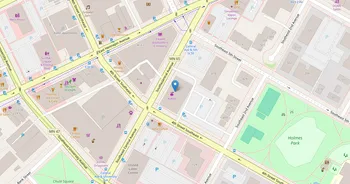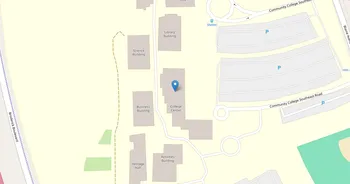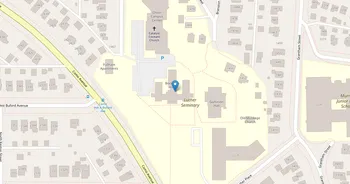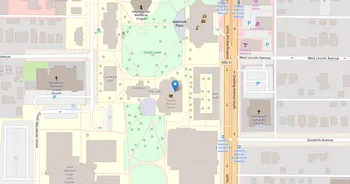Minnesota North College : Overview, Courses, Scholarships & Rankings
About Minnesota North College
Set amid Minnesota's Iron Range, Minnesota North College in Hibbing blends hands-on learning with a practical, supportive vibe. Known for career-technical and transfer-ready academics that stress problem-solving and clear communication, it pairs well-equipped labs and shops with a welcoming library, learning commons, and study nooks. Advising, tutoring, career coaching, transfer support, and resources for veterans and first-generation students are readily available.
Life here feels close-knit and unpretentious, with clubs, service projects, and intramurals alongside easy access to trails, lakes, and winter sports. The community's mining heritage brings a get-it-done attitude and openings with regional employers in healthcare, manufacturing, and the trades. The college has a reputation for faculty who know their students and for community events that showcase student work.
Key Institutional Details
Contact & Profile
Academic & Institutional
Academic Programs & Fields of Study
Minnesota North College offers 45 degree programs across 21 major academic fields, graduating approximately 1,095 students annually. The most popular fields by graduate volume are Liberal Arts (1 programs, 387 graduates), Health (10 programs, 252 graduates), Natural Resources (4 programs, 112 graduates), Security & Safety (1 programs, 60 graduates) and Production (1 programs, 43 graduates). Explore program details, award levels, and graduate demographics below.
Liberal Arts (1 programs, 387 graduates)
Liberal Arts Education, General Studies and Humanities
| Program Name | Graduates | Gender Distribution | Award Levels | CIP Code |
|---|---|---|---|---|
| Liberal Arts and Sciences | 387 |
|
Associate's
|
24.0101 |
Health (10 programs, 252 graduates)
Healthcare Professions, Medical Sciences and Clinical Practice
| Program Name | Graduates | Gender Distribution | Award Levels | CIP Code |
|---|---|---|---|---|
| Nursing and Patient Care Assistant | 85 |
|
Residency
|
51.3902 |
| Registered Nursing | 71 |
|
Associate's
|
51.3801 |
| Substance Abuse Counseling | 26 |
|
Certificate (1-2 yrs)
Associate's
|
51.1501 |
| Emergency Care Attendant | 20 |
|
Other Award
|
51.0810 |
| Licensed Practical Nursing | 20 |
|
Certificate (1-2 yrs)
|
51.3901 |
| Dental Assisting | 15 |
|
Certificate (1-2 yrs)
Associate's
|
51.0601 |
| Clinical Laboratory Technician | 9 |
|
Associate's
|
51.1004 |
| Therapeutic Recreation | 3 |
|
Associate's
|
51.2309 |
| Medical Insurance Coding | 2 |
|
Certificate (1-2 yrs)
|
51.0713 |
| Emergency Medical Technology | 1 |
|
Associate's
|
51.0904 |
Natural Resources (4 programs, 112 graduates)
Environmental Science and Natural Resource Management
| Program Name | Graduates | Gender Distribution | Award Levels | CIP Code |
|---|---|---|---|---|
| Environmental and Natural Resources Law Enforcement | 42 |
|
Associate's
Other Award
|
03.0208 |
| Natural Resources Conservation | 33 |
|
Associate's
Other Award
|
03.0101 |
| Wildlife and Wildlands Science and Management | 21 |
|
Associate's
|
03.0601 |
| Forest Management | 16 |
|
Associate's
|
03.0506 |
Security & Safety (1 programs, 60 graduates)
Emergency Management, Law Enforcement and Public Safety
| Program Name | Graduates | Gender Distribution | Award Levels | CIP Code |
|---|---|---|---|---|
| Criminal Justice and Police Science | 60 |
|
Certificate (1-2 yrs)
Associate's
Other Award
|
43.0107 |
Production (1 programs, 43 graduates)
Manufacturing Technology, Quality Control and Industrial Arts
| Program Name | Graduates | Gender Distribution | Award Levels | CIP Code |
|---|---|---|---|---|
| Welding Technology | 43 |
|
Certificate (1-2 yrs)
Certificate (≥2 yrs)
|
48.0508 |
Mechanics (4 programs, 39 graduates)
Automotive Technology, Equipment Repair and Maintenance
| Program Name | Graduates | Gender Distribution | Award Levels | CIP Code |
|---|---|---|---|---|
| Heating, Air Conditioning, Ventilation, and Refrigeration Maintenance Technology | 13 |
|
Certificate (1-2 yrs)
|
47.0201 |
| Industrial Mechanics and Maintenance Technology | 11 |
|
Certificate (≥2 yrs)
|
47.0303 |
| Heavy Equipment Maintenance Technology | 10 |
|
Certificate (1-2 yrs)
|
47.0302 |
| Automotive Mechanics Technology | 5 |
|
Certificate (≥2 yrs)
|
47.0604 |
Education (4 programs, 37 graduates)
Educational Sciences, Teaching Methods and Pedagogy
| Program Name | Graduates | Gender Distribution | Award Levels | CIP Code |
|---|---|---|---|---|
| Physical Education Teaching and Coaching | 19 |
|
Other Award
|
13.1314 |
| General Education | 10 |
|
Associate's
|
13.0101 |
| Early Childhood Special Education Teaching | 4 |
|
Associate's
|
13.1015 |
| Early Childhood Education | 4 |
|
Associate's
|
13.1210 |
Construction (2 programs, 31 graduates)
Building Trades, Construction Management and Skilled Crafts
| Program Name | Graduates | Gender Distribution | Award Levels | CIP Code |
|---|---|---|---|---|
| Electrician | 27 |
|
Certificate (≥2 yrs)
|
46.0302 |
| Carpentry | 4 |
|
Certificate (1-2 yrs)
|
46.0201 |
Engineering (1 programs, 30 graduates)
Engineering Sciences and Applied Technology Solutions
| Program Name | Graduates | Gender Distribution | Award Levels | CIP Code |
|---|---|---|---|---|
| Pre-Engineering | 30 |
|
Associate's
|
14.0102 |
Kinesiology (3 programs, 27 graduates)
Exercise Science, Sports Medicine and Physical Recreation
| Program Name | Graduates | Gender Distribution | Award Levels | CIP Code |
|---|---|---|---|---|
| Outdoor Education | 18 |
|
Certificate (1-2 yrs)
Associate's
Other Award
|
31.0601 |
| Exercise Science and Kinesiology | 6 |
|
Associate's
|
31.0505 |
| Physical Fitness Technician | 3 |
|
Other Award
|
31.0507 |
Tuition, Fees & Estimated Costs
Overview of tuition rates, housing, and other annual education expenses for undergraduate and graduate students
Financial Aid & Student Support
Summary of scholarships, grants, student loans, and financial aid statistics for undergraduate students
Student Success Metrics
Graduation rates and post-graduation earnings to help assess student outcomes and long-term value of education.
Loan Burden & Repayment Outcomes
Breakdown of loan repayment rates and student debt levels by income and dependency status.
Frequently Asked Questions
Find answers to the most common questions about Minnesota North College
How much does it cost to attend Minnesota North College?
The annual tuition at Minnesota North College is $6,004 for in-state students and $7,302 for out-of-state students. When including room and board, books, and other expenses, the total estimated cost is approximately $19,386 for in-state students and $20,684 for out-of-state students. Additional costs include room and board $8,066 and books and supplies $660.
Data based on IPEDS program completions for 2022-2023 academic year. Tuition and cost estimates are approximate and may not include all fees, personal expenses, or transportation costs.
What academic programs and degree levels does Minnesota North College offer?
Minnesota North College offers 45 academic programs across 21 major fields of study, with available degree levels: Certificate (1-2 yrs), Certificate (≥2 yrs), Associate's, Residency, Other Award.
Most popular program areas include:
- Liberal Arts Education, General Studies and Humanities (1 programs)
- Healthcare Professions, Medical Sciences and Clinical Practice (10 programs)
- Environmental Science and Natural Resource Management (4 programs)
- Emergency Management, Law Enforcement and Public Safety (1 programs)
- Manufacturing Technology, Quality Control and Industrial Arts (1 programs)
Data based on IPEDS program completions for 2023-2024 academic year. Numbers reflect programs where students graduated, not all offered programs.
What financial aid and scholarships are available at Minnesota North College?
Minnesota North College provides financial aid to 18% of first-time, full-time students, with average grants of $5,891 and average loans of $5,324.
Average financial aid amounts by type:
- Pell grants: $5,040
- State/Local grants: $2,339
- Institutional grants: $1,740
- Federal loans: $4,723
The university supports 386 students with grants and 259 students with loans annually.
Data based on IPEDS for 2022-2023 academic year. Financial aid amounts and percentages may vary by program, enrollment status, and individual circumstances.
What is the average salary for Minnesota North College graduates?
Minnesota North College graduates earn a median salary of $38,107 after 6 years and $45,570 after 10 years.
The salary range 10 years after graduation spans from $27,113 (25th percentile) to $67,803 (75th percentile), with top earners reaching $75,300 (90th percentile).
Data based on IPEDS for 2022-2023 academic year. Salary data reflects graduates who received federal financial aid (approximately 60% of all graduates). Actual earnings may vary significantly based on program, location, and individual circumstances.
Related Universities




Found something useful? Help others discover it too! Share with friends, on social media, or save for later - every share helps someone find the information they need.